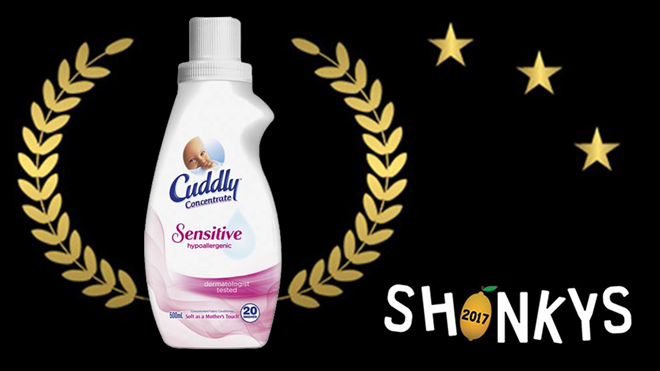There are several drawbacks to fabric softeners.
They add chemicals to your freshly washed clothes that may cause irritation to some people, and over time they cause a gunky build-up in washing machines known as scrud.
They may also reduce flame-resistance in fabrics, which is why some fabric softeners come with a warning not to use them on children's sleepwear.
The chemicals in fabric softeners reduce water absorption in fabrics, which is not much good for towels or nappies.
For all this trouble, you'd expect that your clothes and linens would be fluffier than a teddy bear riding a cloud, or as "soft as a mother's touch" as proclaimed on the Cuddly Sensitive Hypoallergenic bottle.
However, this isn't always the case.
In our testing of fabric softeners, Cuddly Sensitive Hypoallergenic was the lowest ranked product out of 29. We consider both softness and water absorption, and while the fabric softener achieved a 56% softness score, its absorption score of only 20% meant that even water trumped the fabric softener overall.
Vinegar and Epsom salts also received a higher score than Cuddly.
What really got the lemony scent stuck in our nose, though, is the cost of Cuddly Sensitive Hypoallergenic.
At $6 per litre, it's a lot more expensive than tap water's $0.002 price, and it's more costly than many of the fabric softeners in our test.
That's one Shonky recipe for crunchy towels.
Join the Shonkys conversation

Talk about lemons... Share thoughts on this year's Shonky Awards with the CHOICE community forum.


